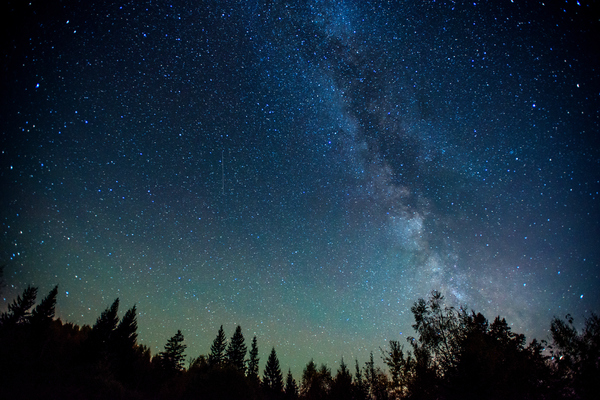By Pastor Andrews - Jan 16, 2024 #creation
Reclaiming the Awe

Not long after our family moved to New Hampshire we had the awe-inspiring experience of witnessing the aurora borealis, commonly called the northern lights. It was breath-taking to say the least. Then, on another occasion my son and I stood in the front yard admiring the most amazing display of stars I had ever seen. I remember remarking to him that it would be a perfectly clear night were it not for the long wispy cloud stretched through the middle of the sky. He looked at me and said, “Dad, that’s not a cloud, those are stars.”
Okay, so I’m obviously not into astronomy. The point is that for the first time in my life I was looking at one of the bands of our Milky Way galaxy. Fittingly named since that band of stars and gases actually resembled a kind of celestial milk spill. I will never forget the sense of awe I felt standing there beneath God’s astral canopy.
Unfortunately, in the last few decades, more and more people have virtually no opportunity to witness this glorious aspect of God’s handiwork. I recently read that the vast majority of the world’s population live under skies obscured by light pollution. Studies have shown that the brightness of the sky due to light pollution increased by almost ten percent in the last decade.
Scientists also claim light pollution adversely affects various flora and fauna, and even human beings whose physical well-being requires regular cycles of both light and darkness. Furthermore, some scientists say the increase in artificial light threatens the migration of birds and the nesting of sea turtles.
My concern is that we’re losing one more wonder that demonstrates the glory of God. In addition to technology’s addictive impact on the younger generation that keeps them glued to artificial light sources, secularism continually seeks to turn God’s creation into a cyber playground. Rather than humbling us before a mighty Creator we’re conditioned to worship the creation instead.
As Christians, and specifically fathers, we should do all we can to share and declare God’s glory to our children. In fact, more and more families are taking “dark sky” tours to national parks and other remote areas in order to view a night sky free from light pollution. Such opportunities can instill a sense of awe as “the heavens declare the glory of God.” (Psalm 19)
I wonder what Abraham must have seen that night the Lord challenged him to count the stars and promised his seed would also be innumerable. Just imagine what it was like for David whose observation of the night sky led him to exclaim, “What is man that you are mindful of him!” (Psalm 8) The Psalmist tells us, “The LORD merely spoke, and the heavens were created. He breathed the word, and all the stars were born.” Psalm 33:6 NLT
Awe has been defined as the feeling of being in the presence of something [or someone] so incredibly vast, beautiful, mysterious, and powerful that it transcends one’s understanding of the world. I think we all could use a little more awe in our lives because of its connection to wonder. Wonder is a mental state of contemplation and curiosity that flows out of awe; and wonder, properly understood, culminates in worship.
Maybe it’s time to take the kids out in the country for a night of star-gazing. Perhaps buy or borrow a telescope, or plan one of those dark skies tours. Getting your children away from the artificial lighting that obscures the knowledge and glory of God is a great way to remind them of who He is. Take Isaiah’s advice:
-
“Look up into the heavens. Who created all the stars? He brings them out like an army, one after another, calling each by its name. Because of his great power and incomparable strength, not a single one is missing.” Isaiah 40:26